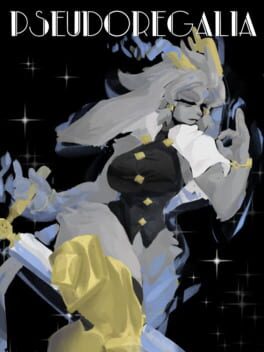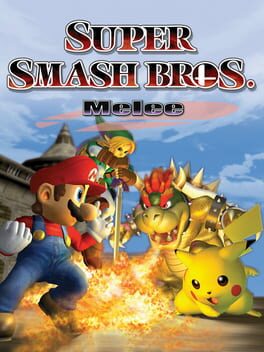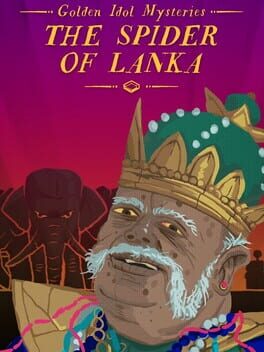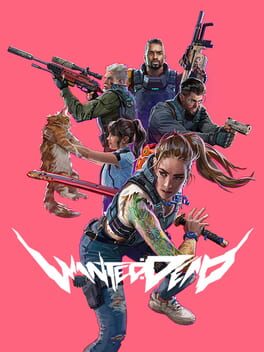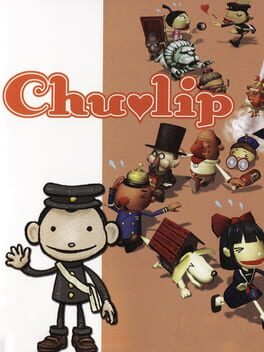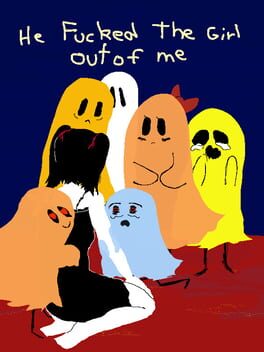Sci_Karate
BACKER
14 reviews liked by Sci_Karate
Pseudoregalia
2023
Pseudoregalia is one of the best executed 3D metroidvanias I've seen. It's a game almost entirely focused on movement, and it really nails that. Your abilities are fun and interesting, and many of them aren't the generic upgrades you'd expect from many games in the genre. You can find them very out of order and it feels like the game almost encourages sequence breaking with the amount of opportunities it gives for that. The combat for the most part is just there, it's not great but it's not in the way to the point of being annoying either, with the exception being the final boss fight which I found surprisingly fun. The vibes of this are great, you're exploring a huge castle with very N64-inspired visuals, and it gets those right in a way that feels very authentic and nostalgic as someone who grew up with that system. The music is also really good and adds a lot to the tone of the game.
My biggest complaint that while the castle has a variety of areas, navigating between them can be a little confusing. The game doesn't have any sort of map, and I mostly respect that decision. I feel like if it had one I probably would have been over-reliant on checking it constantly, and the challenge of mapping everything out in my head in a complex 3D space was pretty fun. That's a pretty fine line to walk though of balancing that complexity without frustrating the player, and where it failed at that was near the end of the game when I had to backtrack to specific areas. Within a single area I was usually fine with navigating off of memory, and didn't get stuck often at all, but in the later parts of the game I would know a specific location I needed to get to, and remembering where the zone transitions were and figuring out how the areas all connected together was more frustrating than fun.
Overall it's a very neat game that's good at what it does, and it's very short and underpriced for what it is, so it's an easy recommendation. I could see myself replaying it just to see how doing things in a different order went, or trying to speedrun it as it seems like a really good game for that.
My biggest complaint that while the castle has a variety of areas, navigating between them can be a little confusing. The game doesn't have any sort of map, and I mostly respect that decision. I feel like if it had one I probably would have been over-reliant on checking it constantly, and the challenge of mapping everything out in my head in a complex 3D space was pretty fun. That's a pretty fine line to walk though of balancing that complexity without frustrating the player, and where it failed at that was near the end of the game when I had to backtrack to specific areas. Within a single area I was usually fine with navigating off of memory, and didn't get stuck often at all, but in the later parts of the game I would know a specific location I needed to get to, and remembering where the zone transitions were and figuring out how the areas all connected together was more frustrating than fun.
Overall it's a very neat game that's good at what it does, and it's very short and underpriced for what it is, so it's an easy recommendation. I could see myself replaying it just to see how doing things in a different order went, or trying to speedrun it as it seems like a really good game for that.
I was 22 when I had my first psychotic episode. I had dropped everything and moved to Austin with a girlfriend who was not a good fit for me, pursuing my dream of (somehow) becoming a professional actor. None of this was going well; the relationship and the jobs I was working were all dead ends that I wasn't really acknowledging or dealing with.
Eventually all the stress and self-deceit came to a head in a giant fight, and I started thinking things that were decidedly false. I came to believe that I was the center of a conspiracy of surveillance, Truman Show style, that was being run by my friends. Every detail that I noticed confirmed this: I saw a car make a weird U-turn which to me was proof positive that it was following me. A dump truck passed the window with a flashing yellow light; this was clearly someone trying to signal to me that they were in on the conspiracy. A cat sitting on the hood of a car must have been some kind of sophisticated spy camera.
I never experienced hallucinations, I was never violent and I didn't cackle maniacally like every single clueless, no-effort depiction of mental illness in Hollywood and elsewhere. The only thing that was missing was my capacity to critically examine my own ideas.
You know how when you're thinking super hard about something for a long time, and you finally figure it out, and you get that big rush of endorphins like "ahhhhh I finally got it." It's a great feeling, but you have to work to get there right? You have to come up with and reject a lot of ideas before you find the one that fits. Well, I was having that "ahhhh" feeling with every fleeting notion. You don't realize how many thoughts you reject as nonsense until you lose the ability to do so.
You might see a squirrel run toward you and think "Wouldn't it be cool if that was some kind of little robot?" then immediately reject that idea without a second thought. That rejection is what was broken in me; even the most momentary flight of fancy became the unassailable truth. I saw the squirrel and it was self-evident that it was being remotely-controlled as a way to keep tabs on me. Not a single thought in my mind that any of this stuff was wrong.
Public mental health facilities in Texas at the turn of millennium were about as you'd expect. I was there involuntarily and kept trying to escape, so I spent a lot of the first few days restrained (more than 20 years later I still get a panicky feeling in my chest when I think about being strapped to that bed). I was shot up with Haldol that left me a drooling, twitching mess. At no point did I receive anything resembling therapy. After a few weeks the doctor assigned to my case finally came back from vacation and I seemed fine so they basically shrugged and let me go.
"Depression with psychotic features" they called it that first time. Eventually, after experiencing more episodes and being institutionalized and re-diagnosed a few more times, they settled on the diagnosis of Bipolar I disorder and I've been stable on lithium for over a decade now. I was lucky and got basically the happiest possible outcome. I don't think that's the case for most people dealing with mental health issues, especially psychosis.
Mental health is like sexuality, in that we as a society are obsessed with it but only seem to engage with it in the most unhealthy ways. In our entertainment media, references to insanity are constant. Calling someone's sanity into question is an easy and common insult. After every mass shooting, the airwaves are crammed with politicians scapegoating the mentally ill. We're finally to the point where (in some circles) it's considered unacceptable to use "gay" or "retarded" as insults, but nobody bats an eye if you call someone "crazy" or "psycho".
But for all of that, it's basically unheard of for someone in power to say anything meaningful about mental health. When Hollywood approaches the topic, the results are universally rancid. Games tend to fall into two camps: crazy-person-as-horror-villain studio hack jobs, or autobiographical indies that actually bring some experience to the picture.
And that's why Hellblade stands out so much to me. It's not an indie; it has the full weight of a storied and talented (albeit small) studio behind it. But they've done the work to actually try to depict psychosis in a realistic way, that brings the player into the experience as an exercise in empathy, not just a cheap aesthetic choice.
It was a marvel to me how the puzzles in the game are built around seeing patterns that aren't really there, exactly like I did during my psychotic episodes. The scene where all the trees have eyes, but they're really just tricks of the light, was so incredibly true to my experience. I never saw things that weren't there; I saw things that were there but misinterpreted them in critical ways, just like Senua.
And Senua? Possibly my favorite protagonist of any game. Melina Jeurgens gives it so much of herself, and her character design is such a breath of fresh air in an industry full of gross fan service. She looks like a real person! She's still pretty, but doesn't look like a RealDoll that someone dressed up in cosplay gear.
I could only play this game in short sessions because it's so damn intense. The story hits hard, and Senua's agonizing deaths were challenging. Mechanically, the game is really quite light. Only a couple gameplay verbs are made available as the story progresses very linearly. Hellblade aims to challenge the player on a sensory, emotional and intellectual level more than a gameplay one. For me, it was deeply effective and affecting.
With the sequel on the horizon it's exciting to imagine what Ninja Theory has in store for us next. It really feels like the conversation around mental health is starting to turn; the crazies are finally out telling their stories, taboos and misinformation be damned. I love how indie developers have stepped up and started raising the level of discourse around mental health and I really hope that more and bigger studios follow suit. Fear of retaliation or judgment can make mental illness a really isolating experience. It really does feel good to feel seen, and playing a game like Hellblade is really great reminder that I'm not alone.
Eventually all the stress and self-deceit came to a head in a giant fight, and I started thinking things that were decidedly false. I came to believe that I was the center of a conspiracy of surveillance, Truman Show style, that was being run by my friends. Every detail that I noticed confirmed this: I saw a car make a weird U-turn which to me was proof positive that it was following me. A dump truck passed the window with a flashing yellow light; this was clearly someone trying to signal to me that they were in on the conspiracy. A cat sitting on the hood of a car must have been some kind of sophisticated spy camera.
I never experienced hallucinations, I was never violent and I didn't cackle maniacally like every single clueless, no-effort depiction of mental illness in Hollywood and elsewhere. The only thing that was missing was my capacity to critically examine my own ideas.
You know how when you're thinking super hard about something for a long time, and you finally figure it out, and you get that big rush of endorphins like "ahhhhh I finally got it." It's a great feeling, but you have to work to get there right? You have to come up with and reject a lot of ideas before you find the one that fits. Well, I was having that "ahhhh" feeling with every fleeting notion. You don't realize how many thoughts you reject as nonsense until you lose the ability to do so.
You might see a squirrel run toward you and think "Wouldn't it be cool if that was some kind of little robot?" then immediately reject that idea without a second thought. That rejection is what was broken in me; even the most momentary flight of fancy became the unassailable truth. I saw the squirrel and it was self-evident that it was being remotely-controlled as a way to keep tabs on me. Not a single thought in my mind that any of this stuff was wrong.
Public mental health facilities in Texas at the turn of millennium were about as you'd expect. I was there involuntarily and kept trying to escape, so I spent a lot of the first few days restrained (more than 20 years later I still get a panicky feeling in my chest when I think about being strapped to that bed). I was shot up with Haldol that left me a drooling, twitching mess. At no point did I receive anything resembling therapy. After a few weeks the doctor assigned to my case finally came back from vacation and I seemed fine so they basically shrugged and let me go.
"Depression with psychotic features" they called it that first time. Eventually, after experiencing more episodes and being institutionalized and re-diagnosed a few more times, they settled on the diagnosis of Bipolar I disorder and I've been stable on lithium for over a decade now. I was lucky and got basically the happiest possible outcome. I don't think that's the case for most people dealing with mental health issues, especially psychosis.
Mental health is like sexuality, in that we as a society are obsessed with it but only seem to engage with it in the most unhealthy ways. In our entertainment media, references to insanity are constant. Calling someone's sanity into question is an easy and common insult. After every mass shooting, the airwaves are crammed with politicians scapegoating the mentally ill. We're finally to the point where (in some circles) it's considered unacceptable to use "gay" or "retarded" as insults, but nobody bats an eye if you call someone "crazy" or "psycho".
But for all of that, it's basically unheard of for someone in power to say anything meaningful about mental health. When Hollywood approaches the topic, the results are universally rancid. Games tend to fall into two camps: crazy-person-as-horror-villain studio hack jobs, or autobiographical indies that actually bring some experience to the picture.
And that's why Hellblade stands out so much to me. It's not an indie; it has the full weight of a storied and talented (albeit small) studio behind it. But they've done the work to actually try to depict psychosis in a realistic way, that brings the player into the experience as an exercise in empathy, not just a cheap aesthetic choice.
It was a marvel to me how the puzzles in the game are built around seeing patterns that aren't really there, exactly like I did during my psychotic episodes. The scene where all the trees have eyes, but they're really just tricks of the light, was so incredibly true to my experience. I never saw things that weren't there; I saw things that were there but misinterpreted them in critical ways, just like Senua.
And Senua? Possibly my favorite protagonist of any game. Melina Jeurgens gives it so much of herself, and her character design is such a breath of fresh air in an industry full of gross fan service. She looks like a real person! She's still pretty, but doesn't look like a RealDoll that someone dressed up in cosplay gear.
I could only play this game in short sessions because it's so damn intense. The story hits hard, and Senua's agonizing deaths were challenging. Mechanically, the game is really quite light. Only a couple gameplay verbs are made available as the story progresses very linearly. Hellblade aims to challenge the player on a sensory, emotional and intellectual level more than a gameplay one. For me, it was deeply effective and affecting.
With the sequel on the horizon it's exciting to imagine what Ninja Theory has in store for us next. It really feels like the conversation around mental health is starting to turn; the crazies are finally out telling their stories, taboos and misinformation be damned. I love how indie developers have stepped up and started raising the level of discourse around mental health and I really hope that more and bigger studios follow suit. Fear of retaliation or judgment can make mental illness a really isolating experience. It really does feel good to feel seen, and playing a game like Hellblade is really great reminder that I'm not alone.
Genuinely the most exhausted I've felt after beating a fantasy adventure game, taking the crown from Dark Souls III.
If I were meaner I'd drop 1 star but I'd be remiss not to acknowledge the technical and presentation aspects of this. As fun as it is to compare it to Gmod, it far exceeds it in many practical ways, though of course not being nearly as deep.
I don't have the energy to list out everything detail by detail but I think what killed a lot of my enthusiasm which peaked in the 10-20 hour mark (thus, spent close to 40-60 with a sense of "is it over yet?") was just the sheer lack of ambition in shrines and general quest design. For a game so heavily built around its lego pieces it sure is scared to make the player put more than 2 pieces together (and if it does, it leaves out a preassembled example 9/10 times.). There's little way to tell whether or not the shrine you're entering is worth your time, an easy "avoid" is if it's right alongside the main roads of the map, but even near the edge of the map or more far away regions I found the game reminding me for the 3rd time post-tutorial how to throw an item or how to stack objects. Late into the game I just started skipping shrines wholesale, unless they were convenient for fast travel i.e. in the sky islands or mazes or I just had a REALLY good feeling they'd be at least decent.
In many ways the Zonai stuff was the most consistently disappointing to me, with much of the slog of the game wrapping around to it. I scraped by with only 5 notches of battery(!!!) for 90% of my playthrough and felt like I had more than enough breathing room for any puzzles, bordering on bypassing many outright due to headroom. I said this shortly after leaving the great sky island, that they should have doubled charge capacity as a baseline; and I think they agree because any zonai task that looks like it'd ask for more also has batteries lying around to offset anyone who has an unupgraded charge.
By the time I wanted the game to be over it just kept sending me on absurdly long fetch quests. It might sound silly but do you know how often I completed a temple or major questline and thought "man I could've replayed Ico"? A lot more than just once lol. That's a new feeling for me really, in regards to singleplayer games; I may joke about it but I'm almost never serious if it's anything legitimate, but I really felt that here. In many ways I just don't think the game respects the players time, and I don't mean in an endearing / engaging way like you'd see in Demon's Souls or Faster Than Light. It doesn't help by this point it repeats the shit out of bosses in a way that would make Elden Ring blush, and unlike Elden Ring there's no easy way to tell if what you're doing is underpowered vs you based on map location; it feels arbitrary,
Really where this game shines is.. where most 3D Zeldas shine, which is the world and characters. and to that end it's very good imo. The music is also mostly lovely. I'm now too tired to write more, kind of like the average shrine quality walking from the outer tenth of the map inwards.
If I were meaner I'd drop 1 star but I'd be remiss not to acknowledge the technical and presentation aspects of this. As fun as it is to compare it to Gmod, it far exceeds it in many practical ways, though of course not being nearly as deep.
I don't have the energy to list out everything detail by detail but I think what killed a lot of my enthusiasm which peaked in the 10-20 hour mark (thus, spent close to 40-60 with a sense of "is it over yet?") was just the sheer lack of ambition in shrines and general quest design. For a game so heavily built around its lego pieces it sure is scared to make the player put more than 2 pieces together (and if it does, it leaves out a preassembled example 9/10 times.). There's little way to tell whether or not the shrine you're entering is worth your time, an easy "avoid" is if it's right alongside the main roads of the map, but even near the edge of the map or more far away regions I found the game reminding me for the 3rd time post-tutorial how to throw an item or how to stack objects. Late into the game I just started skipping shrines wholesale, unless they were convenient for fast travel i.e. in the sky islands or mazes or I just had a REALLY good feeling they'd be at least decent.
In many ways the Zonai stuff was the most consistently disappointing to me, with much of the slog of the game wrapping around to it. I scraped by with only 5 notches of battery(!!!) for 90% of my playthrough and felt like I had more than enough breathing room for any puzzles, bordering on bypassing many outright due to headroom. I said this shortly after leaving the great sky island, that they should have doubled charge capacity as a baseline; and I think they agree because any zonai task that looks like it'd ask for more also has batteries lying around to offset anyone who has an unupgraded charge.
By the time I wanted the game to be over it just kept sending me on absurdly long fetch quests. It might sound silly but do you know how often I completed a temple or major questline and thought "man I could've replayed Ico"? A lot more than just once lol. That's a new feeling for me really, in regards to singleplayer games; I may joke about it but I'm almost never serious if it's anything legitimate, but I really felt that here. In many ways I just don't think the game respects the players time, and I don't mean in an endearing / engaging way like you'd see in Demon's Souls or Faster Than Light. It doesn't help by this point it repeats the shit out of bosses in a way that would make Elden Ring blush, and unlike Elden Ring there's no easy way to tell if what you're doing is underpowered vs you based on map location; it feels arbitrary,
Really where this game shines is.. where most 3D Zeldas shine, which is the world and characters. and to that end it's very good imo. The music is also mostly lovely. I'm now too tired to write more, kind of like the average shrine quality walking from the outer tenth of the map inwards.
It's more Case of the Golden Idol so obviously it's excellent. I just wish there were more of it. The overarching mystery is a delight to unravel (and connects with the original game in some fun ways), but three brief episodes can't rival the jaw dropping twists and turns of some of the original's later chapters.
In conclusion: please never stop making Golden Idol chapters. I will buy all of them forever.
In conclusion: please never stop making Golden Idol chapters. I will buy all of them forever.
Wanted: Dead
2023
what a goddamn mess. i wonder what led to this game having like 10 different directions, all eventually coalescing into one extremely entertaining, frustrating, and insane whole. there are like 5 different plots happening at once, and none of them get that much time for themselves.
- it feels like you're seeing the logical end to events in the lives of the cast; an end represented by slightly underwhelming action setpieces that are executed with mild disinterest (apart from the literal bloodbaths) coming from the game.
- it's like you're experiencing a deranged outsourced sequel to a blockbuster drama that really wants to make some callbacks to show good faith to the audience.
- it's impossible to find anything other than pure sincerity here.
- it's honestly beautiful.
- it feels like you're seeing the logical end to events in the lives of the cast; an end represented by slightly underwhelming action setpieces that are executed with mild disinterest (apart from the literal bloodbaths) coming from the game.
- it's like you're experiencing a deranged outsourced sequel to a blockbuster drama that really wants to make some callbacks to show good faith to the audience.
- it's impossible to find anything other than pure sincerity here.
- it's honestly beautiful.
No More Heroes
2007
Chulip
2002
Signalis
2022
the narrative is elliptical in a way i wouldve loved to chew on like 10 years ago ... but i'm old now and insensate and respond only to sensory inputs like color and sound. luckily this game is full of weird crunchy noises and gross textures in addition to a cast of morose lesbians who look like fanart of themselves. If everyone is gay i think ... no one is gay. i have so much patience and LOVE for proudly tedious, unreconstructed survival horror mechanics!!! the loop here is finessed just enough; you'll come upon puzzle solutions naturally as u explore new rooms, but it's also exhausting to find the item you need with a full inventory and the nearest save room half the map away :))))) a masterclass in what i think the kids call "filtering" ...
also happy to see a game that doesn't bother with delicately alluding to other art (subtle intertextuality ... that thing videogames are famous for); it just plops it in front of you whole-cloth. the silent hill save screen and meat world slop are really obvious, all the classical pieces & cosmic horror texts, but the use of the böcklin painting "isle of the dead" is especially canny — he painted a handful of versions (plus a cheerier follow-up "isle of life"), there are several potential IRL inspirations, it was widely proliferated in his home country ... its so thematically relevant girl!!
also happy to see a game that doesn't bother with delicately alluding to other art (subtle intertextuality ... that thing videogames are famous for); it just plops it in front of you whole-cloth. the silent hill save screen and meat world slop are really obvious, all the classical pieces & cosmic horror texts, but the use of the böcklin painting "isle of the dead" is especially canny — he painted a handful of versions (plus a cheerier follow-up "isle of life"), there are several potential IRL inspirations, it was widely proliferated in his home country ... its so thematically relevant girl!!
